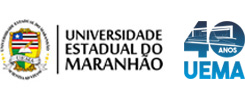Use este identificador para citar ou linkar para este item:
https://repositorio.uema.br/jspui/handle/123456789/3401| Título: | Fake News: uma análise da influência da desinformação frente às eleições presidenciais brasileiras de 2022 |
| Título(s) alternativo(s): | Fake News: an analysis of the influence of disinformation in relation to Brazilian presidential elections of 2022 |
| Autor(es): | Viana, Alexa Lima |
| Orientador: | Passos, Hugo Assis |
| Membro da Banca: | Lima, Marcelo de Carvalho |
| Data do documento: | 2024-08-28 |
| Editor: | Universidade Estadual do Maranhão |
| Resumo: | Em meio a um cenário turbulento de desinformação, onde a integridade do processo eleitoral, a confiabilidade nos candidatos e a credibilidade das instituições foram postas à prova, as eleições presidenciais de 2022 no Brasil tornaram-se um campo fértil para a proliferação de fake news. Essa eleição, em especial, foi notoriamente marcada por uma avalanche de informações falsas, enquanto a Justiça Eleitoral travava uma batalha hercúlea para conter a disseminação de conteúdos enganosos e prejudiciais ao sistema democrático na Internet. Assim, este trabalho busca aprofundar a compreensão sobre o impacto devastador que a desinformação, especialmente na forma de fake news, exerceu durante o período eleitoral de 2022. A pesquisa foca na maneira como essas notícias falsas, amplificadas pelas plataformas digitais, foram habilmente utilizadas para manipular a opinião pública e influenciar o voto, distorcendo a realidade e contaminando o debate político. Parte-se da premissa de que a difusão massiva dessas informações inverídicas abalou profundamente o processo eleitoral, comprometendo a percepção dos eleitores sobre a lisura do sistema eleitoral e corroendo a confiança nas instituições democráticas que sustentam o Estado de Direito. O objetivo principal deste estudo é investigar as consequências dessa desinformação, analisando como ela influenciou a formação da opinião pública e quais foram as reverberações desse fenômeno. Além disso, o trabalho examina os mecanismos legais vigentes e as iniciativas do Tribunal Superior Eleitoral (TSE) no combate a essa ameaça crescente. Para tanto, adota-se uma abordagem qualitativa, ancorada em uma revisão bibliográfica e análise dedutiva. O estudo se baseia na análise de legislações, doutrinas e documentos que abordam a atuação do TSE, além de interpretar eventos específicos que exemplificam o impacto das fake news no processo eleitoral brasileiro de 2022. |
| Resumo: | Amid a turbulent scenario of disinformation, where the integrity of the electoral process, the trustworthiness of candidates and the credibility of institutions were put to the test, the 2022 presidential elections in Brazil have become a fertile field for the proliferation of fake news. This election, in particular, was notoriously marked by an avalanche of false information, while the Electoral Court fought a herculean battle to contain the spread of misleading and harmful content to the democratic system on the Internet. Therefore, this work seeks to deepen understanding of the devastating impact that misinformation, especially in the form of fake news, had during the 2022 election period. The research focuses on the way in which this fake news, amplified by digital platforms, was skillfully used to manipulate public opinion and influence the vote, distorting reality and contaminating the political debate. It is based on the premise that the massive dissemination of this untrue information has profoundly shaken the electoral process, compromising voters' perception of the fairness of the electoral system and eroding confidence in the democratic institutions that support the Rule of Law. The main objective of this study is to investigate the consequences of this misinformation, analyzing how it influenced the formation of public opinion and what the reverberations of this phenomenon were. Furthermore, the work examines the current legal mechanisms and the initiatives of the Superior Electoral Court (TSE) in combating this growing threat. To this end, a qualitative approach is adopted, anchored in a bibliographic review and deductive analysis. The study is based on the analysis of legislation, doctrines and documents that address the role of the TSE, in addition to interpreting specific events that exemplify the impact of fake news on the 2022 Brazilian electoral process. |
| Palavras-chave: | Fake News Desinformação Democracia Liberdade de expressão Justiça Eleições presidenciais Justiça eleitoral Fake News Misinformation Democracy Freedom of expression Justice Presidential elections Electoral justice |
| Aparece nas coleções: | Curso de Bacharelado em Direito CCSA - Monografias |
Arquivos associados a este item:
| Arquivo | Descrição | Tamanho | Formato | |
|---|---|---|---|---|
| MONOGRAFIA - ALEXA LIMA VIANA - CCSA UEMA 2024.pdf | 605.71 kB | Adobe PDF | Visualizar/Abrir |
Os itens no repositório estão protegidos por copyright, com todos os direitos reservados, salvo quando é indicado o contrário.
